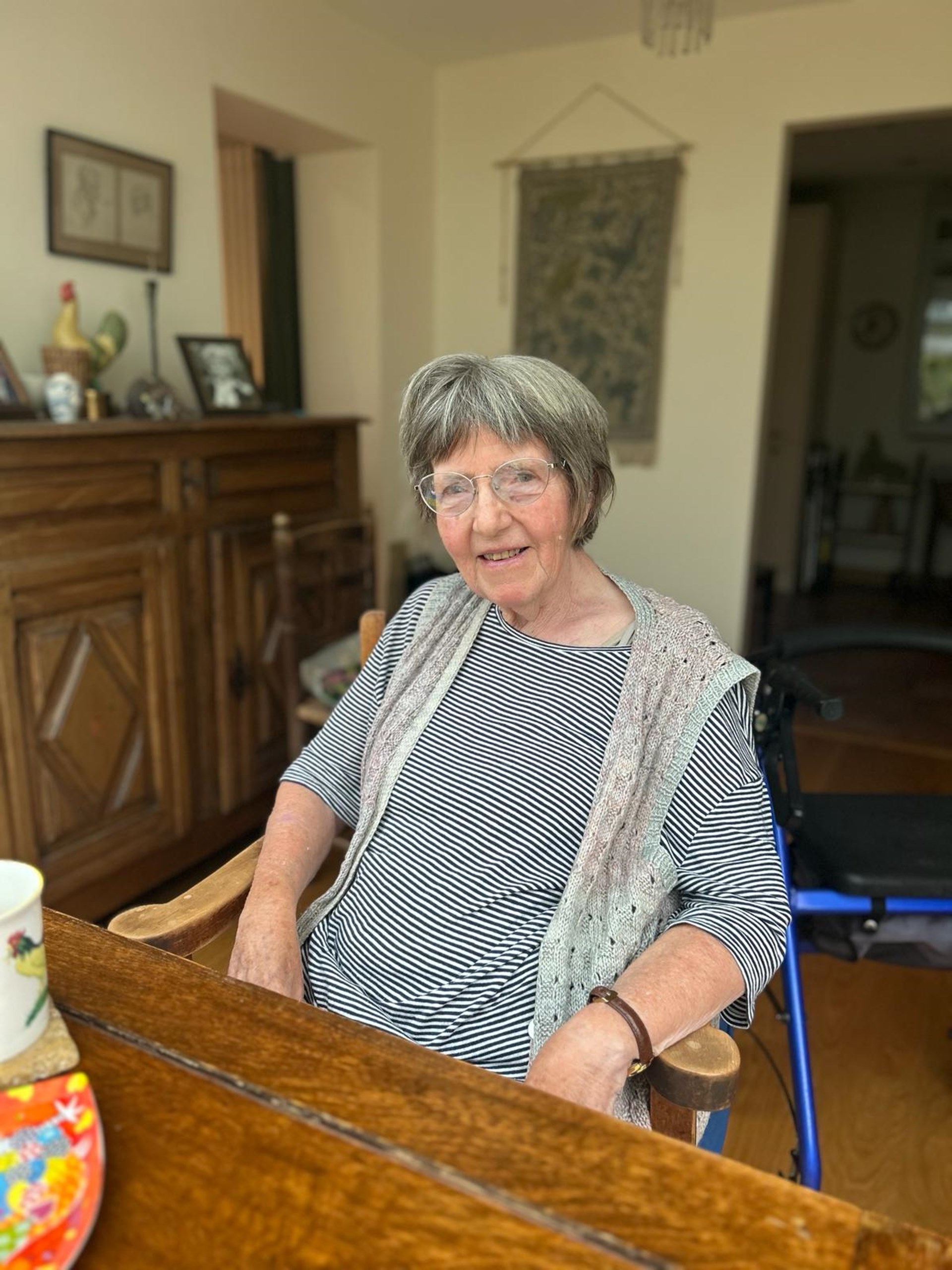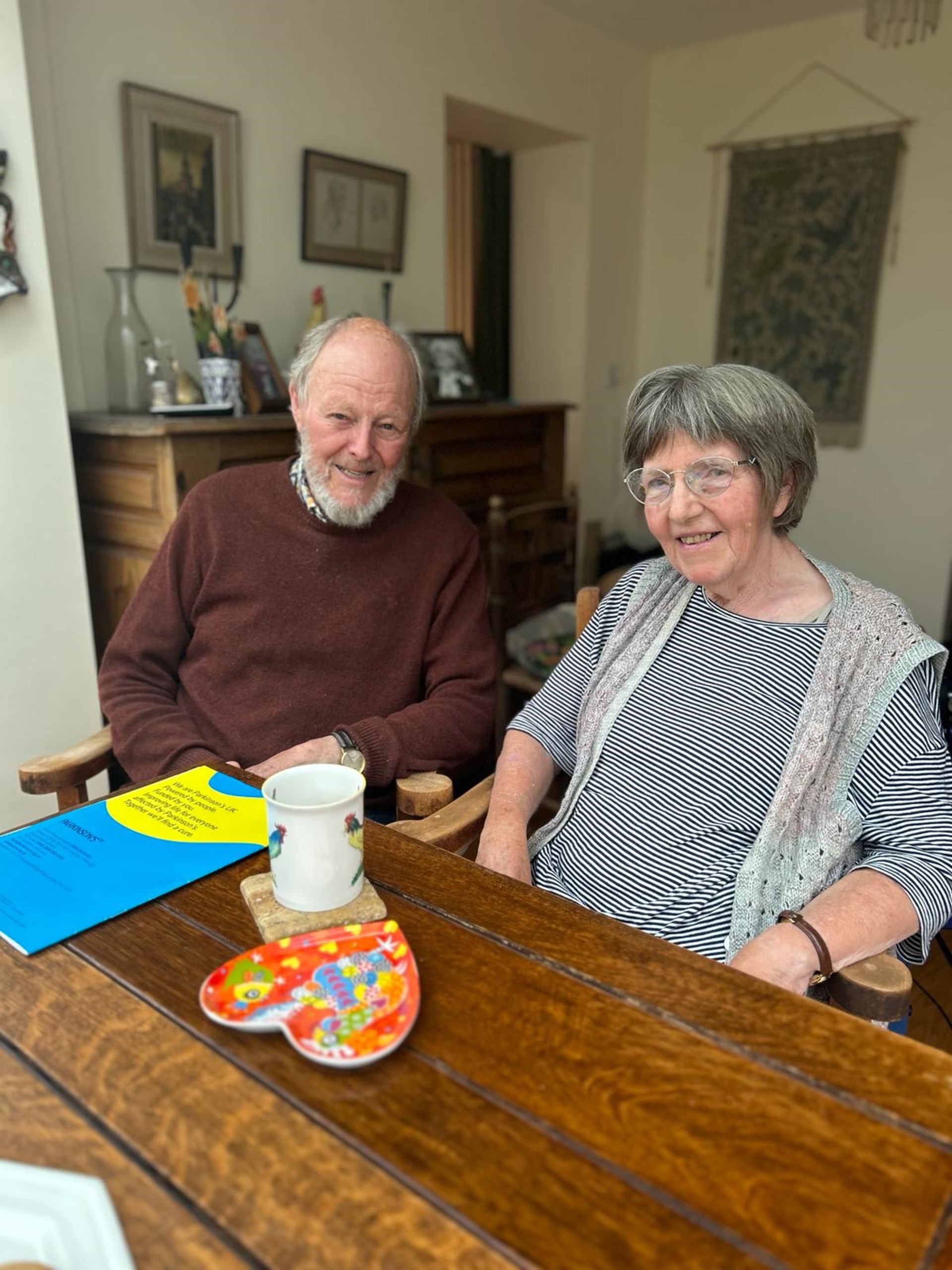A Journey with Parkinson's and Right at Home
Published: 10/06/2024

Hilary’s journey with Parkinson’s disease began 12 years ago, and since then, her life has seen many changes. Living with Parkinson’s is challenging, impacting everything from motor skills to basic daily routines. However ,with support from family, friends and Parkinson’s specialists Hilary has been able to maintain a balanced quality of life and, over the past year, this support has been supplemented by Right at Home.
The Diagnosis and Initial Adjustments
When Hilary was first diagnosed, the reality of Parkinson’s was daunting. The progressive nature of the disease meant that everyday tasks gradually became more difficult. Initially, Hilary could manage her symptoms with minimal assistance, but as the years went by, the impact on her motor control and overall strength became more pronounced. Activities like painting, drawing, and gardening, which once brought her immense joy, became increasingly challenging.
Daily Life with Parkinson’s
Parkinson’s disease affects Hilary’s ability to perform even the simplest tasks. Her hands, once steady and strong, now struggle with tremors and coordination issues. Cooking, for instance, is no longer feasible, as she finds it difficult to handle kitchen utensils and ingredients.
Medication management is another crucial aspect of Hilary’s daily routine. The effectiveness of her treatment hinges on precise timing, particularly for her morning dose, which needs about 45 minutes to take effect before she can start her day. This requires careful planning and coordination, as any delay can significantly impact her mobility and overall comfort.
The Role of Right at Home
Right at Home has been providing sensitive support which helps Hilary and is also beneficial to Michael. Understanding the complexities of Parkinson’s disease, the care team tailors their services to meet Hilary’s specific needs. They arrive at 7:45 AM each morning, perfectly timing their visits to align with Hilary’s medication schedule. This ensures that she can begin her day with minimal discomfort and maximum mobility.
The CareGivers from Right at Home are not just punctual but also deeply compassionate. They engage with Hilary on a personal level, understanding her preferences and adjusting their care routines to enhance her comfort and this personalised approach makes a world of difference.
Overcoming Daily Challenges
One of the most significant challenges Hilary faces is maintaining her independence while managing her symptoms. Right at Home has implemented several strategies to help her achieve this balance. For example, they assist with tasks that require fine motor skills, such as grooming and dressing, allowing Hilary to retain a sense of autonomy without compromising her safety.
In addition to physical assistance, the emotional support provided by the CareGivers has been invaluable. Living with a chronic illness can be isolating, but the regular interaction with compassionate professionals has helped Hilary stay positive and engaged. Her husband has also welcomed the Care Givers visits and is reassured to know she is being well cared for.

Community and Resources
Beyond the direct care provided by Right at Home, Hilary and Michael have benefited from various community resources. Parkinson’s organisations have supplied them with informative materials on managing symptoms, dietary considerations, and exercise routines. They have learned important tips, such as the impact of protein on medication absorption, which has helped them optimise Hilary’s treatment plan.
Hilary also participates in a weekly exercise group designed for individuals with neurological conditions. These sessions have not only improved her physical health but also provided a sense of community and camaraderie. Being surrounded by others who understand her challenges has been incredibly uplifting.
Advice for Others
Hilary and Michael strongly believe in the importance of staying informed and seeking support. For those newly diagnosed with Parkinson’s, they recommend connecting with organisations that specialise in the disease and exploring the resources available. Support groups, informational booklets, and tailored exercise programs can all contribute to a better quality of life.
Moreover, they emphasise the value of professional care services like Right at Home. The personalised care and emotional support provided by experienced CareGivers can make a significant difference in managing daily challenges and maintaining independence.
Conclusion
With continued help from everybody involved she continues to lead a fulfilling life and her story is a powerful testament to the impact such dedicated care can have on individuals living with chronic illnesses.
